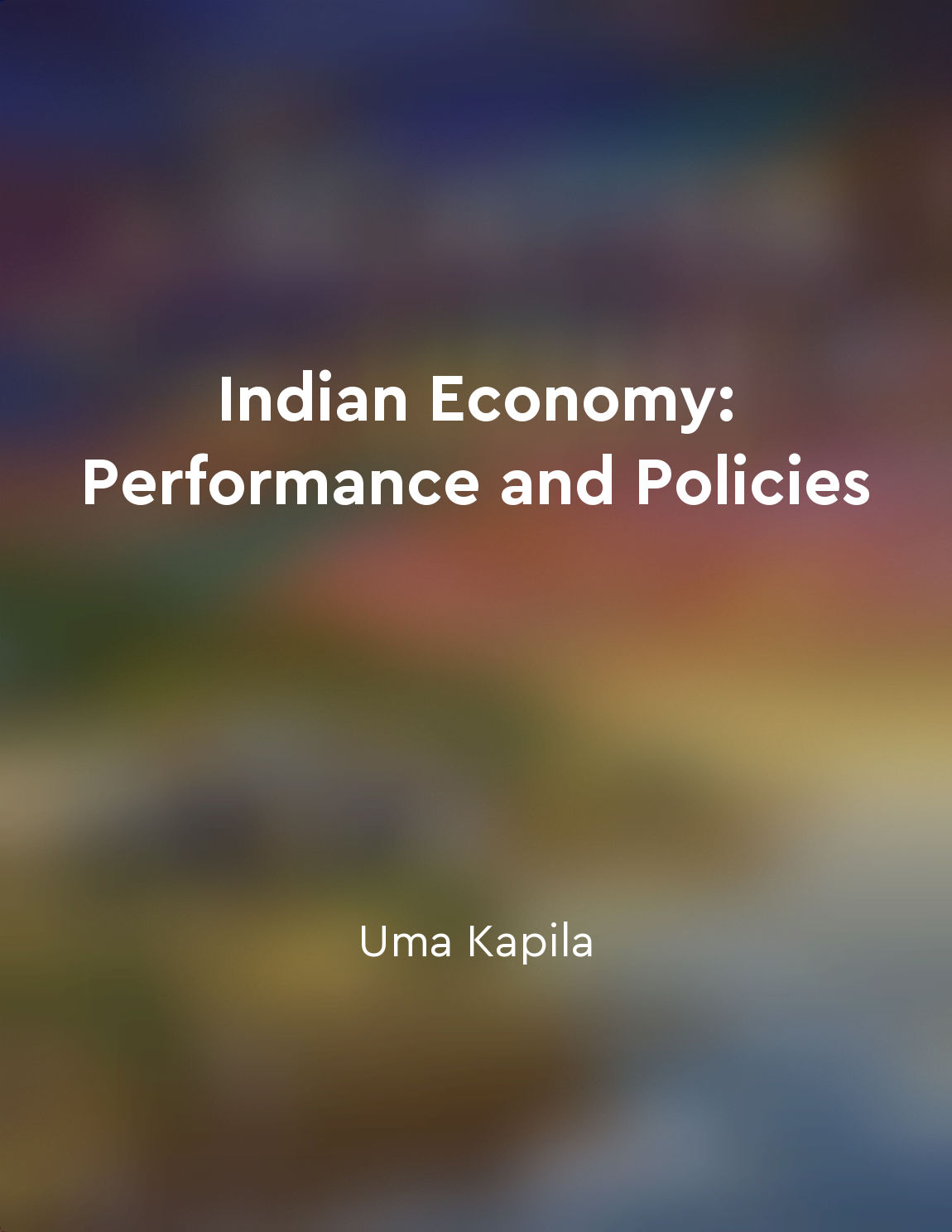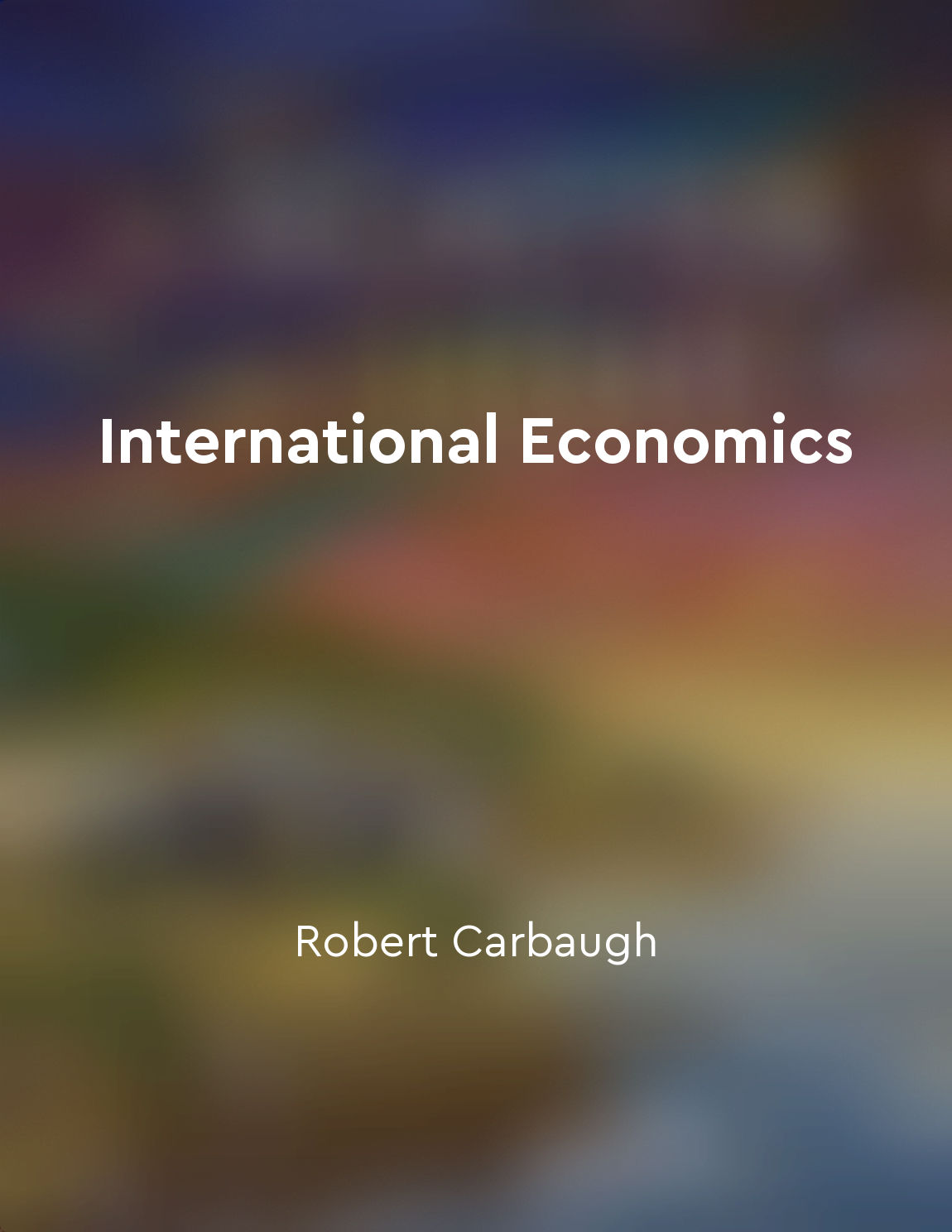Exchange rates affect international trade and investment from "summary" of Economics of Money, Banking and Financial Markets, Business School by Frederic S. Mishkin
Exchange rates play a crucial role in determining the levels of international trade and investment. When a country's currency appreciates, its goods and services become more expensive for foreign buyers. This can lead to a decrease in exports as foreign customers seek cheaper alternatives. On the other hand, a depreciation of a country's currency makes its exports more competitive in the global market, leading to an increase in export levels. Similarly, exchange rates also impact international investment decisions. A stronger currency makes foreign investments more attractive as investors can purchase more assets in the foreign country for the same amount of their domestic currency. Conversely, a weaker currency may deter foreign investors as their returns may be eroded when repatriated back to their home country. The relationship between exchange rates, international trade, and investment is not one-dimensional. Fluctuations in exchange rates can create uncertainty and risk for businesses engaging in international transactions. This uncertainty can lead to a decrease in trade and investment as businesses may delay or cancel their plans until the exchange rate stabilizes. Moreover, exchange rate movements can also impact the profitability of multinational corporations. Companies with operations in multiple countries are exposed to exchange rate risk as fluctuations in currencies can affect their revenues and costs. To mitigate this risk, multinational corporations may engage in hedging activities to protect their profits from adverse exchange rate movements.- Exchange rates play a significant role in shaping the patterns of international trade and investment. Businesses, investors, and policymakers closely monitor exchange rate movements to anticipate their impact on the global economy. Understanding the dynamics of exchange rates is essential for making informed decisions in the increasingly interconnected world of international finance and commerce.
Similar Posts

Investment savings rates infrastructure bottlenecks
Investment savings rates infrastructure bottlenecks are crucial factors that can significantly impact the economic growth and d...
Look for companies with a history of generating free cash flow
When analyzing a potential investment, one key factor to consider is whether the company has a history of generating free cash ...

Trade barriers hinder the flow of goods and services
Trade barriers, such as tariffs and quotas, can significantly impede the movement of goods and services across borders. These b...
Utilize technical analysis for making informed trading decisions
Technical analysis is an essential tool for traders seeking to make informed decisions in the forex market. By analyzing histor...

Future value calculation is essential
Understanding the concept of future value calculation is crucial in the world of finance. This calculation allows individuals a...
Quantitative methods are used to analyze financial data
Quantitative methods play a crucial role in the world of finance by providing a systematic way to analyze financial data. These...
Evaluate infrastructure for economic development
When you're looking to invest in a country, it's crucial to think about the infrastructure. What does this mean? Well, it's all...
Aggregate demand drives economic activity
The level of economic activity in a country is determined by the total amount of goods and services that households, firms, and...
Financial institutions play a crucial role in market equilibrium
Financial institutions are key players in the functioning of financial markets. They provide the necessary infrastructure for t...
Be adaptable in changing economic environments
In today's dynamic world, where economic conditions are constantly in flux, it is crucial for investors to be able to adapt to ...


